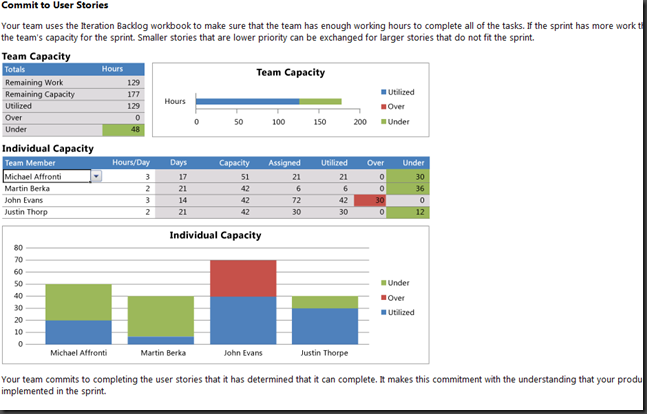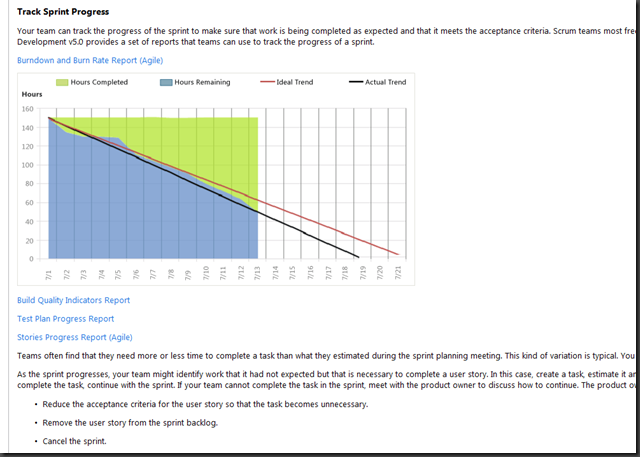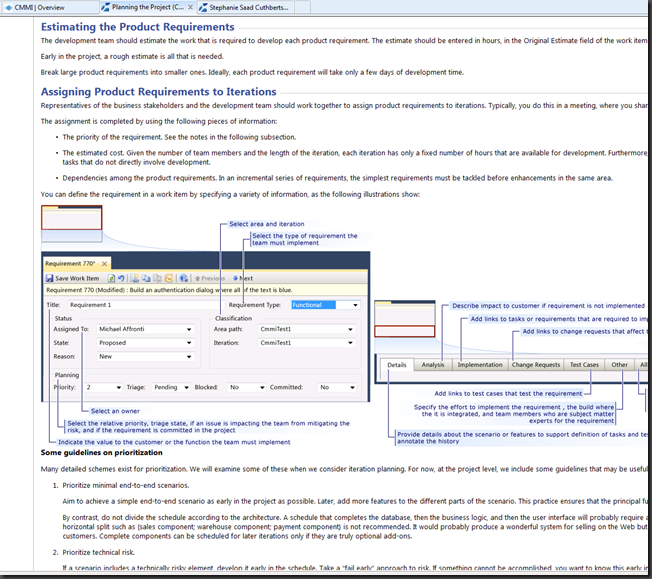New Agile Guidance and CMMI Guidance
You may have already noticed in the Beta 2 version of Team Foundation Server that the Agile guidance looks quite a bit different. The RC content is up and I wanted to call it out because it’s alot different than anything you’ll have seen before. I’d love to get your feedback. We still have a ways to go here long term, but I think the content is alot cooler than previous releases, in terms of valuable content.
The first thing you’ll notice is that when you connect to guidance, it’s up on MSDN. Those of you who are loyal TFS fans will remember that in 2008 the guidance was hosted on SharePoint. Moving it up to MSDN cut 40% off project create times in TFS by elimiinating a huge file copy. It also allows us to publish updates off-cycle pretty easily using the MSDN system. Finally, we’re now in a tight partnership with our own doc team (all this guidance used to be written through the product teams and P&P without the doc team’s involvement). I think this partnership has really resulted in some great readability, solid content and alot better flow from WHY you’re doing something into exactly HOW to do it in TFS… would love your thoughts. [ TFS 2010 MSF for Agile Guidance]
The next thing you’ll notice is the agile content is, well, completely agile. We really want to follow and learn from the agile movement, and do our best to create fantastic tools around the right experience. We got a ton of feedback on 2008 that you wanted a template and guidance that was “truly agile” – pulling the core concepts from agile development, and showing teams how to implement with TFS.
You’ll notice an introduction by Jeff Sutherland, one of the fathers of Scrum. Mitch Lacey, one of the top TFS scrum trainers, was also a huge contributor. And finally, Ken Schwaber helped us with great review. A good part of the TFS team had training with Mike Cohn during the product cycle, and we learned a ton. I personally think alot of Jeff, Mitch, Ken and Mike – they all bring a pragmatic, effective approach to Scrum, and I think it works for teams. One thing that’s really important to me personally is that we in TFS are bringing the very best to our customers, tools and practices that we’ve tried, and we believe in. I actually still think TFS has a huge ceiling here in terms of what we can do better, but I’m excited about the start and glad to hear feedback.
In terms of the rest of the content – you’ll notice the project management section is entirely about Scrum and TFS 2010. In Beta 1 this content was more generically agile, but our customer feedback was that you really wanted the specifics on how to practice Scrum with TFS.
You’ll also find a whole section on how to implement different agile engineering practices in TFS 2010 - heavily informed by XP and others:

CMMI Guidance
I’m also really happy with the broad updates to the CMMI Guidance. David Anderson, who wrote the original TFS CMMI guidance, helped us with a great update. Both the template and guidance are updated from CMMI 1.1 to the current CMMI 1.2 version. Link to TFS 2010 MSF for CMMI
There are also extensive changes throughout the content to better explain CMMI concepts and link them directly to how to practice CMMI in TFS.
We particularly wanted to include a great description of the process married with a great overview of how to do it in TFS – here are a few examples in gathering product requirements and handling change management in TFS 2010. (All of the pictures in this post are hyperlinks to the actual guidance for you to check out.)
Hope that is useful.
Thanks!
Stephanie










